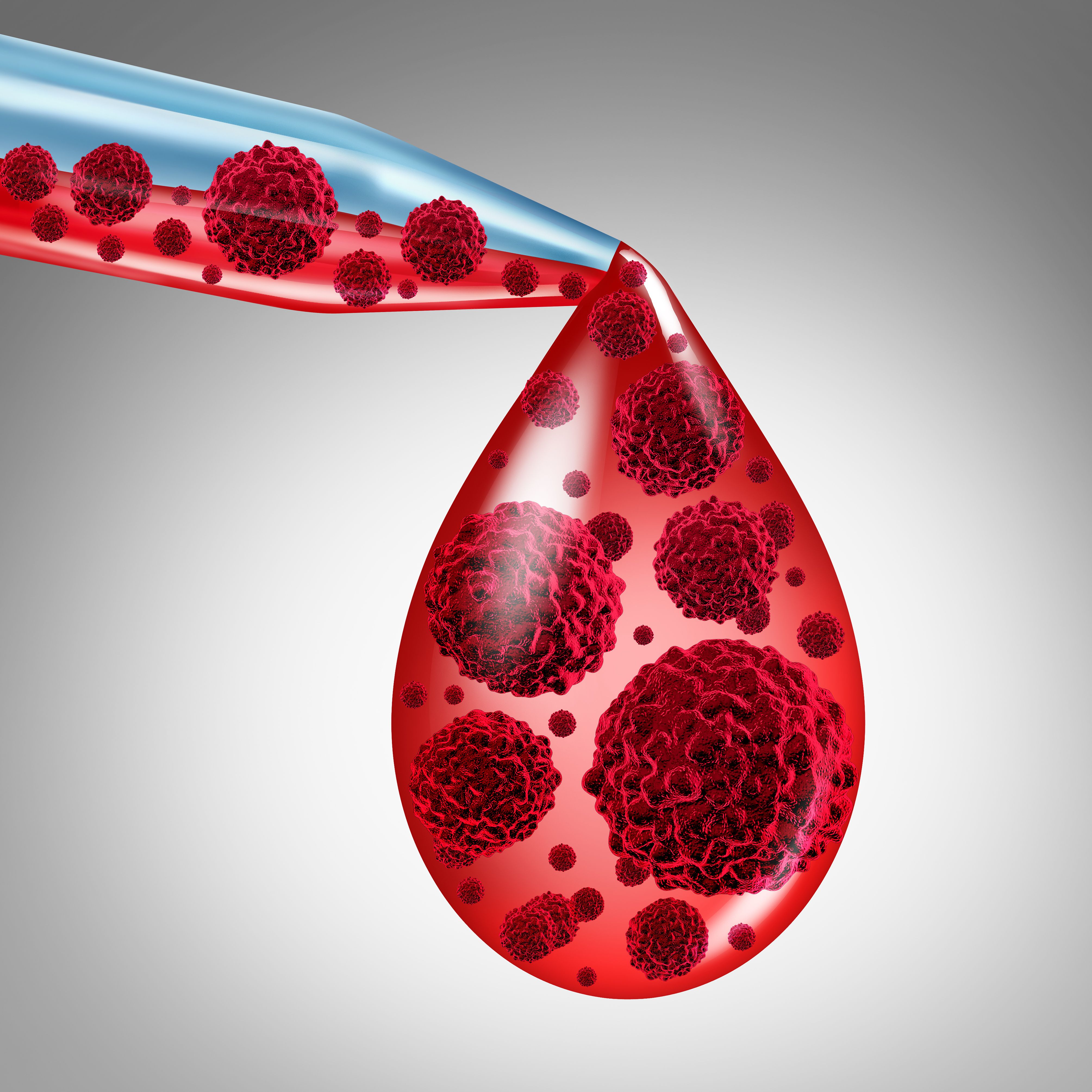Navitoclax Added to Ruxolitinib Improves Spleen Volume and Symptoms in Myelofibrosis
The ability to modify disease in patients with myelofibrosis was signaled in the REFINE study. The combination also displayed positive efficacy and was tolerable.

The addition of navitoclax (ABT-263) to ruxolitinib (Jakafi) achieved clinical benefit in patients with JAK inhibitor-naïve myelofibrosis (MF). The combination had a manageable safety profile and showed a preliminary signal of disease modification, according to results from cohort 3 of the phase 2 REFINE study (NCT03222609).1,2
"These results are promising for patients who need a treatment option that goes beyond just symptom control," said Francesco Passamonti, professor of hematology, University of Insubria, and chief of hematology, in a press release.2 "The suggestion of disease modification in this analysis from combination therapy with navitoclax is encouraging, particularly when combined with clinical efficacy in terms of SVR35 rates in the higher risk groups that improved over time."
According Passamonti et al, JAK inhibitors can reduce splenomegaly and spleen symptoms in patients with MF, but these agents do not reduce bone marrow fibrosis (BMF) or variant allele frequency (VAF) for driver mutations. However, BCL-2 inhibitors have demonstrated promise for the treatment of MF in preclinical studies. The investigators hypothesized that combing the BCL-2 inhibitor navitoclax and with the JAK inhibitor, ruxolitinib.1
Patients with primary or secondary MF who were 18 years of age or older were enrolled in cohort 3. All patients had an ECOG performance score of 0-2 and were JAK-2 or BET inhibitor treatment-naïve. The patients were treated with navitoclax 100 mg or 200 mg once daily, depending on whether their baseline platelet count was ≤ 150 × 109/L or > 150 × 109/L,, respectively, and ruxolitinib at a starting dose matching the local label. Treatment was continued until loss of clinical benefit or unacceptable toxicity.
The primary end point assessed in the study was spleen volume reduction (SVR) of 35% (SVR35) from baseline at week 24. The study also assessed change in BMF grade from baseline and reduction in VAF.
At a median follow-up of 9.75 months (range, 4.4-22.4 months), SVR35 was observed in patients treated with navitoclax and ruxolitinib in the study. Patients were exposed to the combination for a median of 37.9 weeks (range, 1.0-97.0).
In key risks groups, which included patients over the age of 66 years, secondary MF, high Dynami International Prognostic Scoring System score, and those with HMR mutations, there was also SVR35 at week 24 and at any time during the study.
Results for the secondary end points showed that 28% of patients had a ≥ 1 grade reduction in BMF from baseline. Moreover, 22% patients had complete resolution of BMF. The median time to BMF reduction was 12.3 weeks (range, 12.1-24.1). Five of 14 evaluable patients showed a VAF reduction ≥ 50% for driver gene mutations. The molecular responses to navitoclax/ruxolitinib occurred as early as 12 weeks into treatment.
"Consistent with previous evidence, these results suggest navitoclax combination may have disease modifying potential, both as an anti-fibrosis agent and by reducing variant allele frequency of driver mutations." Mohamed Zaki, MD, PhD, vice president and global head of oncology clinical development, AbbVie, in the press release.
The efficacy and safety and disease-modifying potential of navitoclax in combination with ruxolitinib is being further investigated in the phase 3 TRANSFORM-1 study. In TRANSFORM, about 252 patients with JAK inhibitor-naïve MF will be treated with either oral navitoclax with oral ruxolitinib or oral ruxolitinib alone (NCT04472598).
REFERENCES:
1. Passamonti F, Foran JM, Tandra A, et al. 237 The combination of navitoclax and ruxolitinib in jak inhibitor-naïve patients with myelofibrosis mediates responses suggestive of disease modification. Blood. 2022;140 (suppl 1): 583–585. doi:10.1182/blood-2022-157949
2. AbbVie presents data at the 64th American Society of Hematology (ASH) annual meeting for investigational navitoclax in combination with ruxolitinib for jak inhibitor-naïve myelofibrosis patients. News release. AbbVie. December 10, 2022. Accessed January 16, 2023. https://bit.ly/3ISCKRD
2 Commerce Drive
Cranbury, NJ 08512
All rights reserved.